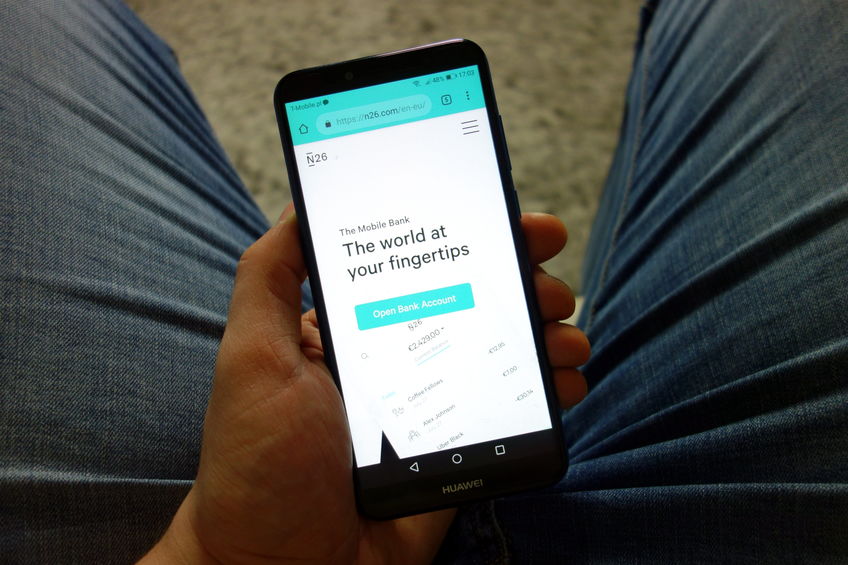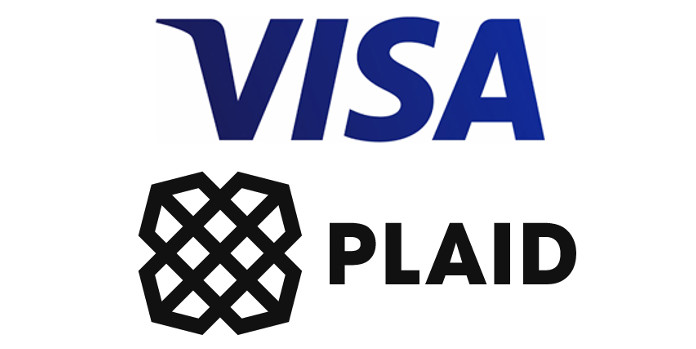Fintech
Intuit Agrees to Buy Credit Karma For $7.1 Billion
February 26, 2020 This week the news broke that a deal had been reached between Credit Karma and Intuit that will see the latter purchase Credit Karma for $7.1 billion, paid for with cash and stock. After rumors of the deal leaked over the weekend, the agreement was confirmed on Monday by chief executives from both companies.
This week the news broke that a deal had been reached between Credit Karma and Intuit that will see the latter purchase Credit Karma for $7.1 billion, paid for with cash and stock. After rumors of the deal leaked over the weekend, the agreement was confirmed on Monday by chief executives from both companies.
Under the deal, Credit Karma will continue to operate as a stand-alone business and its CEO, Kenneth Lin, will stay on and run the company. Beyond that, some believe that the merger will see Intuit rise as a go-to platform for financial services. Owning TurboTax as well as Mint, tools for filing taxes and budgeting, respectively, the addition of Credit Karma, which allows customers to view their credit score for free, would advance Intuit’s product suite as well as bolster the data it already has on users.
“There hasn’t been that much innovation in the financial services world in the past two decades,” Credit Karma Founder and CEO Kenneth Lin said. “The combination of the two companies will really be able to move consumers forward.”
Credit Karma claims to have 100 million customers, with half of all American millennials being included within that number. It also states that it has over 2,600 data points on each customer, including their social security number as well as loan history. The company makes its money by selling customer information to third parties who advertise new credit cards and loans on the Credit Karma site. Credit Karma also receives a couple of hundred dollars for each card and loan that is acquired through ads on its site. Being one of the few tech startups that actually turn a profit, Credit Karma claimed to have received $1 billion in revenue in 2019.
Speaking on the deal, Intuit’s CEO, Sasan Goodarzi, said that “This is very core to what we’ve declared around helping our customers make ends meet and make smart money decisions.”
LendingClub Becomes First Fintech Lender to Buy a Bank
February 19, 2020 Today LendingClub announced that it has agreed to acquire Boston-based Radius Bank for a purchase price of $185 million, made up by cash and stock. Holding more than $1.4 billion in assets, the merger will enable LendingClub to offer checking accounts and save millions in bank fees and funding costs each year.
Today LendingClub announced that it has agreed to acquire Boston-based Radius Bank for a purchase price of $185 million, made up by cash and stock. Holding more than $1.4 billion in assets, the merger will enable LendingClub to offer checking accounts and save millions in bank fees and funding costs each year.
Coming one month after LendingClub settled to pay out $1.25 million to resolve allegations that it charged rates in violation of Massachusetts state law, now, more than ever, appears to be a good time for the company to be on its way to attaining a bank and all of the FDIC-approved measures that come with it.
Described as a “no-brainer decision” by LendingClub’s CEO Scott Sanborn, the news comes after the fintech had tried unsuccessfully to get a bank charter. Becoming a popular trend among online lenders and fintechs, with Square having applied for one recently and Varo Money getting approved last week, the merger is the first time that a fintech has actually bought a bank. “Adding the capabilities of a bank charter to the LendingClub mix really changes the game both in terms of what we can do for our customers and what we can do for shareholders,” Sanborn stated.
Having been in discussions with Radius for over a year, it is believed that the purchase was made with the opinion that buying a bank would be less time-demanding than getting approved for a bank charter. The federal banking regulatory approval process is expected to take between 12 and 15 months.
In October 2019, LendingClub VP & Head of Communications Anuj Nayar spoke to deBanked about the company’s future, noting its intentions to broaden its offerings and transition from a product-centric company to a platform-centric company.
“We talk about a customer journey, moving our customers to being visitors, where they basically came to us for a personal loan and then come back to the company a couple of years later for another personal loan, to being much more about lifetime value of the customer and our relationship with the customer.” Nayar said. “The customer experience over the next year is going to change pretty dramatically as we start with bringing some of these new learning products on board but we’ve also been making clear that we’re investigating broader banking services that we’re going to be offering our customers.
Originally valued at $8.5 billion, LendingClub had one of the biggest US tech IPOs in 2014. However the share price has fallen more than 88% over the previous 5 years.
The Fintech Legal Outlook for 2020: Top 3 Insights from Todd Hamblet
February 18, 2020 We recently sat down with Todd Hamblet, Fundbox’s new Chief Legal Officer, and asked his thoughts about what legislative or legal issues would be shaping the fintech industry this year. Between presidents and precedents, decisions are coming down within the next 12 months that will have a significant effect on the way Fundbox and other fintechs do business. Here’s what Todd had to say:
We recently sat down with Todd Hamblet, Fundbox’s new Chief Legal Officer, and asked his thoughts about what legislative or legal issues would be shaping the fintech industry this year. Between presidents and precedents, decisions are coming down within the next 12 months that will have a significant effect on the way Fundbox and other fintechs do business. Here’s what Todd had to say:
Q: What key issues or predictions do you see when it comes to legal compliance in the fintech industry in 2020?
A: My basic view is that I expect to see continued efforts to regulate the financial services industry and fintech. These regulations are likely to focus on protection of consumer and commercial borrowers, privacy, or data protection. That said, I don’t think that innovation and regulation are incompatible. I think that there is sensible regulation that can achieve the goals of protecting consumers of financial services without completely stifling fintech innovation.
I think the outcome of the election will have a significant bearing on how active regulators are in the fintech space. In the absence of leadership from Washington, I’m concerned that we’re going to continue to see state-by-state legislation instead of a federal overlay. California and New York are two states actively working to fill this void. State versus federal regulation creates the challenge of needing to comply with 50 state requirements, which sometimes might be at odds with each other, as opposed to a more unified regulatory regime. You just have to spend a lot of resources in researching, staying up to date, and modifying what in many cases is a fairly streamlined product offering to comply with different state laws.
I worry that too disparate of a regulatory regime can, in fact, stifle innovation. It won’t stop innovation, but it can make it more challenging. I am certainly not opposed to sensible regulation, but sometimes the best intentions can lead to anomalous outcomes. You always have good actors and bad actors, and in our space, for example, we’re trying to disrupt a very traditional way of underwriting and lending in a commercial space that just hasn’t been compatible with or user friendly for small businesses.
The small business community is under-served, in part because you’re talking about smaller dollars than your traditional banks are even willing to underwrite. You’ve started to see community banks and credit unions step in a bit, but even in those cases, the lending model is still paper-heavy. It’s not optimized for all the data that’s out there, the ability to use technology, or alternative data sources. I think that fintech companies like Fundbox are serving and filling a niche that is really valuable for small businesses. Think about a mom-and-pop shop. They need to be able to run their business. They don’t need to spend all their time going back and forth with their bank, trying to get a loan. They need quick access to capital that may be just to solve a short-term problem. It may be to meet payroll during a slow month. That’s the problem we’re trying to solve, and also doing it in a way that is bringing it into the 21st century. This means using alternative data sources and machine learning, not relying exclusively on credit reports or FICO scores, and using other metrics to look at the credit worthiness of an enterprise.
I find it really exciting. It’s really satisfying to know that we’ve helped a lot of small businesses at the heart of our economy. So I think additional regulation is inevitable, but I hope it’s reasonable and sensible, and that it serves the purpose of protecting the borrower but doesn’t impose so many requirements or obligations that it makes it impractical for a fintech company to try to serve that population.
Q: Is there anything else you see happening in the realm of compliance?
A: I think we’re going to continue to face additional regulation in the areas of privacy and data protection. In California, we have the California Consumer Privacy Act (CCPA) that came online on January 1st. This is a good example of how, in the absence of federal action, states are going to take up their own legislation. California is the first to have enacted a comprehensive privacy act that companies are now trying to deal with. It impacts not just California companies but any companies dealing with California residents.
We’re tracking legislative developments in other states who are looking to implement their own privacy acts. Absent some sort of harmonized federal overlay (such as the GDPR in Europe), if you have 50 states with disparate privacy regulations, it just becomes very challenging. Of course, we will do everything we can to be compliant, but we have limited resources—we’d love to dedicate our resources to developing and improving products for our customers, instead of worrying about whether we’re tripping up a novel requirement of a particular state’s privacy law. So a federal framework would be really helpful. I already mentioned regulation in the context of the next election, and I think whether there is interest in Washington with a federal privacy law will depend on that outcome.
Q: Aside from the 2020 election, what other issues is the fintech industry keeping an eye on?
A: There have been some interesting cases out there in the fintech space. There’s one case in particular that has created some uncertainty and confusion: the Madden case. Although the case was decided a few years ago, it looks like federal regulators are trying to take steps to clarify the ruling. I hope that 2020 brings better visibility into what’s going to happen there, since the uncertainty is impacting the financial services industry and fintechs.
Generally, Madden is a case that dealt with the “valid when made” concept. When a bank makes a loan, there are various usury laws that can be applicable, depending on the state in which the loan was originated. Under federal law, an FDIC-insured state chartered bank can originate a loan using the maximum rate of interest permitted in the home state of the bank and then “export” that rate into another state, regardless of the state where the borrower is located. Some states have higher usury rates than others, so the maximum rate can vary. It is well settled that when that loan was initially made by the bank, it was “valid when made.” But what happens if that bank decides to sell off that loan to a third party in another state? The Madden case (read broadly) calls into question the “valid when made” doctrine. It said that if the loan had an X percent interest rate when it was originated, but it was sold to a third party in a state that had a usury rate lower than X, that original interest rate may not be valid anymore because of the transfer. Studies have shown that this ruling has led to a decrease in the availability of credit in the states affected by the decision.
Banks have to rely on being able to originate and sell loans—this is a well-settled concept. The question is whether the Madden case is distinguishable enough from the traditional practice that it applies only to a particular scenario (a sale of debt) or whether it is calling into question the broader concept. The reason this impacts fintechs is because a lot of us rely on bank partnerships in order to serve customers in all 50 states. Through these partnerships, fintechs may acquire the receivables on loans originated by partner banks. The question for fintechs in the context of Madden is: when the fintech acquires a receivable, does the interest rate originally offered by the bank partner continue to be valid…or because the fintech is a third party, does some other interest rate cap apply depending on where the borrower is located?
Congress and some other federal regulators are working to clarify that the Madden case should be limited to a narrow set of facts, and that it should not serve as a precedent for disrupting the traditional understanding of “valid when made”. This would be welcome relief to the entire financial services industry, including fintechs. We hope to have this clarification in 2020.
N26 Exits UK Market Citing Brexit as Reason
February 13, 2020 The challenger bank N26 pulled out of the UK market this week, citing Brexit as the reason for its departure. Saying that it will no longer be able to service Britain now that it has left the European Union, N26 has stopped onboarding new customers and will be closing all British accounts on April 15th.
The challenger bank N26 pulled out of the UK market this week, citing Brexit as the reason for its departure. Saying that it will no longer be able to service Britain now that it has left the European Union, N26 has stopped onboarding new customers and will be closing all British accounts on April 15th.
The news came as a shock to many N26 users as the company has, as recently as October 2019, published multiple blog posts assuring customers that Brexit will not disrupt their service. These posts have since been deleted.
In a statement, the neobank advised its UK customers to empty their N26 accounts before April 15 and apologized for the inconvenience. “With the UK having left the European Union, N26 has today announced that it will be leaving the UK market. The timings and framework outlined in the Withdrawal Agreement mean that the company will in due course be unable to operate in the UK with its European banking license.”
Having its headquarters in Berlin, the neobank holds a German banking license. Under EU law, passporting rights enable any banks that hold a charter granted by an EU member state to operate in any other EU country. And while this of course means that N26’s license will no longer be enough for the UK market, temporary permissions exist that allow EU fintechs and financial services companies to continue operating under the same rules until December 31st, 2020, allotting time to draw up new deals and ink new charters.
This detail, as well as the fact that none of N26’s competitors, Revolut, Starling Bank, and Monzo, have announced their exit, has led commentators to reason that the high investment cost associated with applying for a UK banking charter is influencing the decision to pull out, rather than the feasibility and process required.
Speaking to deBanked, a spokesperson for Starling said that “We’re not affected by N26’s decision. Some digital banks appear to have been focusing on growth at all costs. At Starling, we’ve always gone for sustainable growth and have long mapped out our path to profitability. We expect to hit breakeven by the end of 2020 and to turn a profit by the end of 2021.”
Having entered the UK market in October 2018, more than two years after the leave vote, N26 will be cutting service to its +200,000 UK customers. Most of the dozen or so staff members the neobank had in Britain will be repositioned elsewhere in the company, which has offices in Berlin, Barcelona, São Paolo, Vienna, and New York.
The challenger bank has been available in the States since August 2019, garnering over 250,000 customers in the market since then. Valued at $3.5 billion in its July funding round, N26 has received investments from Peter Thiel’s Valar Ventures, Li Ka-shing’s Horizon Ventures, and China’s Tencent Holdings Ltd.
Varo Receives FDIC Approval for Bank Charter
February 12, 2020V aro Money, the company that has been providing customers with app-based banking since 2017, has just received approval from the FDIC to take deposits. Having been working towards this for the previous three years through various rounds of applications to the FDIC, Varo CEO Colin Walsh told CNBC that “it was a long process – for this to finally see daylight is a big deal for the industry.”
aro Money, the company that has been providing customers with app-based banking since 2017, has just received approval from the FDIC to take deposits. Having been working towards this for the previous three years through various rounds of applications to the FDIC, Varo CEO Colin Walsh told CNBC that “it was a long process – for this to finally see daylight is a big deal for the industry.”
Fintechs such as Varo, like Revolut, N26, and Chime, rely on partnerships with banks to provide financial infrastructure in the absence of such FDIC approval. This decision is a first for the fintech space and it means that all accounts with Varo’s partner, Bancorp, will transfer to Varo in Q2 of 2020, so long as the company passes final regulatory tests.
Robinhood, a startup that offers options to invest in stock through its app, previously applied for the same charter but pulled out in November, while the payments titan Square has applied for a different charter for a specialized industrial loan company license.
“Receiving an official bank charter has been part of Varo’s vision from the very beginning, and we are excited to progress through the necessary steps to accomplishing that goal,” Walsh, who is a former American Express executive, said in a statement. “Despite historic economic growth, only 29% of Americans are considered financially healthy. Varo is committed to creating inclusive financial opportunities that deliver measurable benefits to all consumers. Becoming a fully chartered bank will give us greater opportunity to deliver products and services that impact the lives of everyday people around the country.”
Varo has stated that it has ambitions to provide additional services that are typical of banks, eg. credit cards, loans, saving products, but these are of course pending charter approval.
Ocrolus Partners with Kiva to Provide Funding and Publish its Customers’ Stories
February 6, 2020 Ocrolus has announced a partnership with Kiva, the Californian non-profit that provides loans to entrepreneurs in countries underserved by funding options. The deal comes after news of Ocrolus’s partnership with Plaid in December, a venture that helped launch the Ocrolus+ platform.
Ocrolus has announced a partnership with Kiva, the Californian non-profit that provides loans to entrepreneurs in countries underserved by funding options. The deal comes after news of Ocrolus’s partnership with Plaid in December, a venture that helped launch the Ocrolus+ platform.
As part of Kiva’s work to help global small business owners, it publishes the stories of those entrepreneurs, charting how they set up their business and what led them to do it. Ocrolus will follow Kiva’s suit with this partnership, as it plans to publish the stories of its own fintech customers. Aiming to highlight the biographies of those businesses and entrepreneurs that have excelled in the alternative finance and fintech industries, Ocrolus will provide $5,000 for Kiva-backed loans for each story published to its site. If the published business chooses to match this funding, Ocrolus will put forward a further $5,000, bringing the total appropriation for Kiva to $15,000.
Speaking on the partnership, Ocrolus’s COO Vikas Dua told deBanked that the inspiration for the deal came after listening to a podcast that featured one of the co-founders of Toms, a company known for its ‘one for one’ policy which sees a pair of shoes being donated to children in need for every pair bought.
“The best part of Kiva is the types of folks you’re helping and the impact you can have. They do a great job of sharing stories of entrepreneurs and folks in need,” Dua said in a call. “Everyone’s incentives are tied together. Overall, we’re just very excited about the mission and very excited not only to tell our customers’ stories, but also to highlight some of the things we’re doing for the folks that Kiva interacts with and they fund. They have some wonderful stories there and we’re excited to share those as well.”
Open Banking: Canada Might Not Be Able to Make Up for Lost Time
January 22, 2020
Over the last two years, open banking has become a matter of public conversation in Canada. Most would agree there is overwhelming support for the implementation of an open banking regime. So why has nothing concrete happened yet?
2019 turned out to be an exciting, yet painfully underwhelming year for open banking in Canada. The news media finally caught on to the movement and started publishing stories on the rise of robo-advisor apps, or how small and medium-sized businesses would be impacted, and so forth. Experts and industry leaders pitched in with a massive volume of op-eds, most of which were in support of open banking, and with many deploring Canada’s slowness. Some came to our podcast to discuss their perspective (spoiler: customer-centricity is a very big theme.)
Another telling sign of the importance of open banking is the fact that at the federal level, both the legislative and executive arms of the government have become actively engaged in the public conversation. The Senate of Canada’s committee on Banking, Trade and Commerce produced a well-researched report — perhaps the most valuable contribution to the conversation. This report calls for swift action on the part of the federal government to advance a regulatory framework for open banking. In parallel, the Department of Finance’s appointed advisory committee on open banking held a consultation with key stakeholders and should publish its own report in the near future.
Even to a casual observer, there was an obvious sense that Canada is ready to embrace open banking.
But here’s the thing: despite all this work and evidence of widespread support, Canada didn’t move the needle on open banking in any concrete way.
Who’s leading?
The UK has already implemented a comprehensive open banking regime, and continental Europe is close behind. Dozens more countries are working toward their own versions. Among the various geographies moving in this direction, some are opting for a government-led approach, the UK probably being the best example. Others, like the US, tend to be more market-driven. In Canada, the main stakeholders are still largely hesitant about where to strike the balance between the two approaches — and the result is that so far, both have failed to provide the leadership that would allow open banking to move forward.
The Department of Finance’s advisory committee was tasked to study the “merits of open banking”. This line of inquiry feels very old, and for good reason: to question whether we should have open banking or not is a false debate, and a time-wasting rabbit hole. The real question Canada should be asking itself when it comes to open banking is, “what is the objective we want to achieve here?”
Let’s take a few steps back to realize just how important this question is.
The UK had a very clear vision for their open banking regime. The Competition and Markets Authority had assessed that the oligopolistic dynamics of the banking sector were putting consumers at a disadvantage. Thus, the UK set on their open banking journey with a very precise objective in mind: make it easier for consumers to switch providers. While some take great pride in criticizing the UK’s implementation — stating that its objective was either wrong, too narrow, or poorly executed — the fact remains that they are ahead of the pack. And the UK’s leadership in this area still persists, with the Financial Conduct Authority now studying the question of extending the current open banking regime into a holistic open finance regime.
 Meanwhile, in Canada, the government is trying to wrap its head around the big questions, such as the liability framework that should be put in place for an open banking regime to be viable. (In other words, in a system where financial services are decentralized, how do we go about making the consumer whole when something goes wrong?) However, without a decision on what end state we are looking to achieve with open banking, these conversations are doomed to keep looking exactly like they’re looking now: a bunch of market actors with conflicting interests pretending they know what’s best for consumers. Conversations happening in industry groups aren’t much more productive, with the “trench war” dynamics being the trend there as well.
Meanwhile, in Canada, the government is trying to wrap its head around the big questions, such as the liability framework that should be put in place for an open banking regime to be viable. (In other words, in a system where financial services are decentralized, how do we go about making the consumer whole when something goes wrong?) However, without a decision on what end state we are looking to achieve with open banking, these conversations are doomed to keep looking exactly like they’re looking now: a bunch of market actors with conflicting interests pretending they know what’s best for consumers. Conversations happening in industry groups aren’t much more productive, with the “trench war” dynamics being the trend there as well.
The irony is that the technical aspects of open banking can be dealt with easily. From a technical standpoint, financial data-sharing APIs have proven their effectiveness, and coming up with a shared technical standard should not be too difficult. The real challenge is coming up with a framework everyone — incumbents and new entrants alike — can rally behind, something industry groups have largely been ineffective at.
Canada’s highly concentrated financial services sector is a stable one, but incumbents are not likely to open themselves up to disruption. This is the part where bold political leadership is required.
The clock is ticking
Data sharing is nevertheless picking up, as 4 million Canadians (and counting) have made fintech apps a part of their financial lives. Consumers and businesses who want the benefits of on-demand data sharing must rely on the current generation of financial aggregators, like Flinks. This system may work as a de facto connectivity layer, but the lack of standards results in a clumsy patchwork of bilateral deals between aggregators and banks. It just isn’t a viable way to achieve an open banking regime that levels the playing field when it comes to data portability.
In its report, the Senate’s Committee on Banking, Trade and Commerce states that Canada “risks falling behind” if it fails to implement open banking, and that “without swift action, Canada may become an importer of financial technology rather than an exporter.” It is true that if we keep delaying open banking, our slowness will prove to be a very stingy and lasting price to pay for the Canadian society; this is why we need bold action now. We can’t afford the comfort of waiting until we’ve figured out the 100% perfect solution.
There’s nothing like a real-world example: 2020 opened with a seismic shift when financial giant Visa acquired Plaid, one of the largest US financial aggregators, for over five billion USD. This is hinting at a new phase where markets will consolidate around a few large players; Canada can either ride the tide or get towed under.
It’s time to be bold
In the end, what needs to happen for Canada to move forward with open banking?
Our financial services sector can be compared to those of the UK and Australia, where a few powerful banks control a very large portion of the market. In those two countries, open banking was designed to stimulate competition, and government action was necessary to get things moving.
Right now, the question politicians ought to ask shouldn’t be if — or even how — but why. A why will pave the way and provide a natural direction to sort out the how. In 2019, discussions around open banking lacked this fundamental feature: political leadership centered on a bold, ambitious, consumer-centric mission statement. A why.
So here’s one for 2020: open banking will increase consumers’ choice when it comes to financial services. That would be a good start — and while good is not perfect, it still beats nothing by a landslide.
Visa Acquires Plaid in $5.3 Billion Deal
January 14, 2020 Yesterday it was announced that Visa and Plaid, the financial services company that helps business connect with customers’ bank accounts, have penned a deal that would see Visa purchase the San Francisco-based startup for $5.3 billion. The purchase price is roughly double Plaid’s previous valuation of $2.7 billion after its 2018 Series C investment of $250 million. Pending regulatory confirmation, the acquisition is expected to be completed in 3-6 months.
Yesterday it was announced that Visa and Plaid, the financial services company that helps business connect with customers’ bank accounts, have penned a deal that would see Visa purchase the San Francisco-based startup for $5.3 billion. The purchase price is roughly double Plaid’s previous valuation of $2.7 billion after its 2018 Series C investment of $250 million. Pending regulatory confirmation, the acquisition is expected to be completed in 3-6 months.
Founded in 2013 by Zach Perret and William Hockey, Plaid’s API enables companies to easily link with customers bank accounts and connects to a host of apps, such as Venmo, Robinhood, Coinbase, TransferWise, and Acorns. The company claims to have connected to one quarter of Americans with bank accounts and has expanded to both the UK and Canada.
Not being Visa’s first interaction with Plaid, the startup had previously received investment from its new owner, along with other recognizable names like Mastercard, Goldman Sachs, Citi, and American Express.
“This fits well, strategically,” commented Al Kelly, Visa’s CEO, in a call with investors on Monday. “We’re excited about new business and the ability for this to accelerate our revenue growth over time.”
Speaking to CNBC, Perret told CNBC that “We feel fortunate to have been there for the early days of fintech, and to have helped develop that ecosystem … This represents an important milestone, and the ability to work with Visa to make our products much bigger and better – both domestically and internationally.”
Whether such developments mean added features, further expansion to new territories, or something else entirely remains unclear. However, much like Google’s acquisition of Fitbit late last year, this merger witnesses the passing on of a treasure trove of data, with the curtain being pulled on the financial details of millions of transactions between startups and consumers; leaving Visa better positioned to understand and pre-empt what exactly is happening in industries where unpredictable disruption is valued above all else.





























